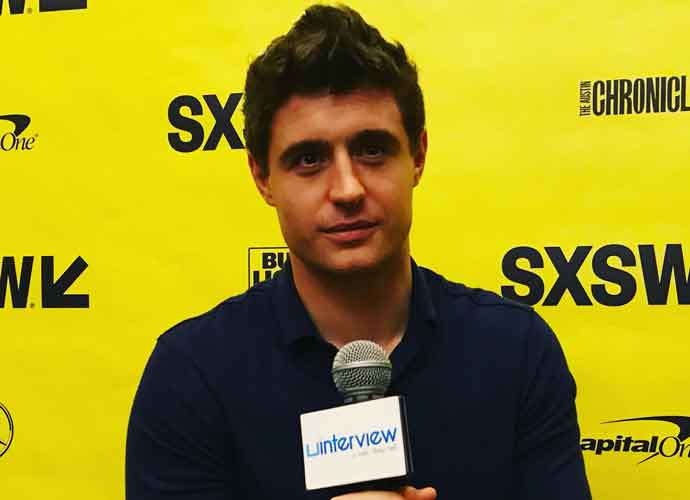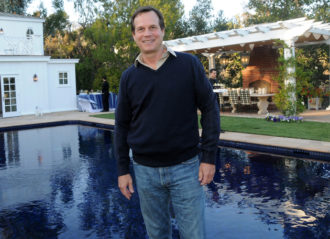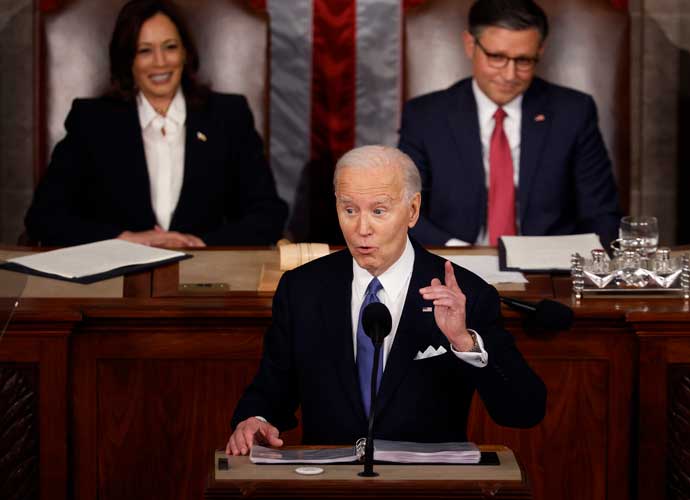VIDEO EXCLUSIVE: Max Irons On ‘Condor,’ SXSW, Running Hard In D.C.
When Max Irons, star of the new AT&T Audience series Condor, first watched the original film, Three Days of the Condor, at 10 years old, he didn’t understand its political significance
“I consequently watched it again when I was preparing to audition for this and realized how timeless the themes are and how much it applies to the world we find ourselves in today,” Irons, the sone of Jeremy Irons, told uInterview exclusively at SXSW 2018 in Austin, Texas.
He said he enjoyed that the original film remained fairly neutral and that the politics of those behind the movie weren’t terribly evident.
“As a result, when you come out of the film, you sort of have a sense of fear — a healthy sense of fear — and paranoia of the governing bodies that represent us, and I think that’s what was wonderful about the film,” Irons said. “The format of television, [normally] in television we have 10 hours, enables you to explore these ideas, explore people’s origins and explore the questions posed. In this case we have Jason [Smilovic] and Todd [Katzberg] — who you may or may not have discovered yet, but I think you will — are incredibly bright people. But more so, on top of that, they’re not keen to, they have no political axe to grind. They are open to exploring various avenues of that conversation, and they do without judgment.”
In the series, Irons plays Joe Turner, a CIA data analyst whose personal values don’t quite align with those of the CIA. His ideals are tested by crises he faces at his job. Irons said he sympathizes with Joe’s ideals.
“We had arguments — me, Tom, William Hurt — and I’m still not at a satisfying conclusion to those arguments, even months down the line having continued to explore with this,” Irons said. “In terms of Joe’s ability to look the other way, you know, he creates this technology and he just passes it on and doesn’t concern himself with how it’s used. I think that’s a shortcoming on his part.”
Read uInterview’s entire interview with Irons below.
Can you describe your character in the series?
Max Irons: I play Joe Turner, who an analyst — a data analyst — in a substation of the CIA. It doesn’t acknowledge itself as part of the CIA. It’s more like a think tank, and within it his job is to analyze vast amounts of metadata and hopefully predict future terrorist targets. He’s a young guy who didn’t initially think the CIA was his path, but his ideals were slightly challenged and he finds himself in an apparatus he doesn’t entirely support. His ideals are at odds with the MO of the CIA.
He discovers a plot within the CIA of a select few to engineer an anti-Islamic narrative. Consequently, he finds himself on the run, and he finds the very ideals that he stands behind tested by crises.
How familiar were you with the original source material?
MI: I saw the film for the first time when I was about 10. Obviously I had no understanding of the political significance of it at the time it was released or the time when I watched it. I consequently watched it again when I was preparing to audition for this and realized how timeless the themes are and how much it applies to the world we find ourselves in today.
Decisions were made not really to explain much of anybody’s politics, any of the major players within that film, including Robert Redford’s. You get a little sense of his political ideals, but that’s about it. As a result, when you come out of the film, you sort of have a sense of fear — a healthy sense of fear — and paranoia of the governing bodies that represent us, and I think that’s what was wonderful about the film. The format of television, [normally] in television we have 10 hours, enables you to explore these ideas, explore people’s origins and explore the questions posed. In this case we have Jason [Smilovic] and Todd [Katzberg] — who you may or may not have discovered yet, but I think you will — are incredibly bright people. But more so, on top of that, they’re not keen to, they have no political axe to grind. They are open to exploring various avenues of that conversation, and they do without judgment.
How well do you relate to your character’s drama?
MI: In terms of his ideals, I’m very sympathetic to them. We had arguments — me, Tom, William Hurt — and I’m still not at a satisfying conclusion to those arguments, even months down the line having continued to explore with this. In terms of Joe’s ability to look the other way, you know, he creates this technology and he just passes it on and doesn’t concern himself with how it’s used. I think that’s a shortcoming on his part.
What was the hardest thing about the shoot?
MI: I had a lot of running, lot of running. Jesus Christ, a lot of running, and I’m telling you, running in leather sole shoes down the streets of Washington for day on day on day, that does you in.
RELATED ARTICLES
Get the most-revealing celebrity conversations with the uInterview podcast!




 Click here for the In Memoriam: Celebrities Who Died In 2017 Slideshow
Click here for the In Memoriam: Celebrities Who Died In 2017 Slideshow




Leave a comment